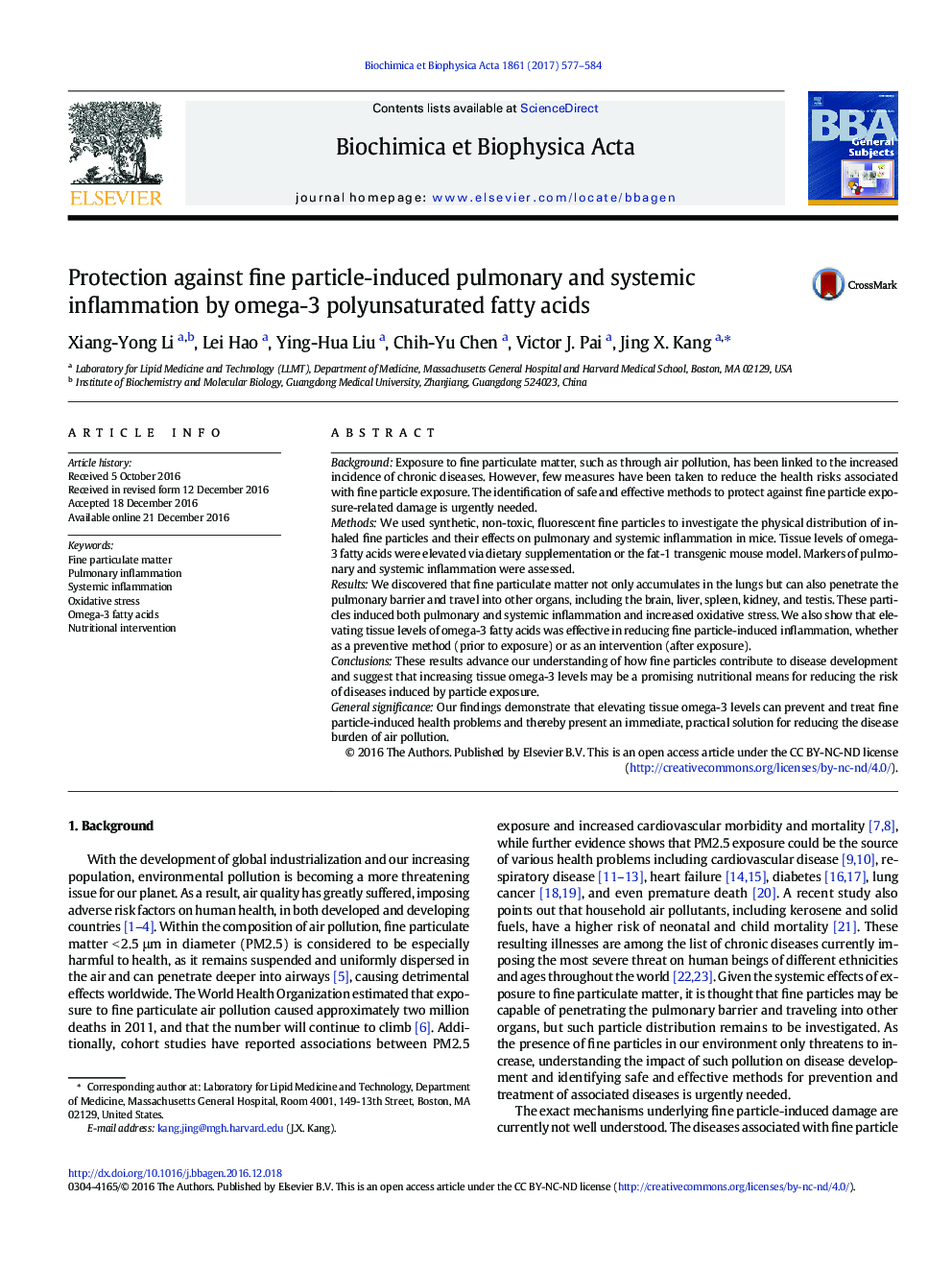| کد مقاله | کد نشریه | سال انتشار | مقاله انگلیسی | نسخه تمام متن |
|---|---|---|---|---|
| 5508216 | 1400366 | 2017 | 8 صفحه PDF | دانلود رایگان |
- Inhaled fine particles are visibly shown to penetrate into multiple organs.
- Fine particle exposure induces pulmonary and systemic inflammation.
- Enriched tissue omega-3 levels prevent against particle-induced inflammation.
- Dietary omega-3 supplementation ameliorates particle-induced inflammation.
- Increasing omega-3 intake could help manage pollution-related health problems.
BackgroundExposure to fine particulate matter, such as through air pollution, has been linked to the increased incidence of chronic diseases. However, few measures have been taken to reduce the health risks associated with fine particle exposure. The identification of safe and effective methods to protect against fine particle exposure-related damage is urgently needed.MethodsWe used synthetic, non-toxic, fluorescent fine particles to investigate the physical distribution of inhaled fine particles and their effects on pulmonary and systemic inflammation in mice. Tissue levels of omega-3 fatty acids were elevated via dietary supplementation or the fat-1 transgenic mouse model. Markers of pulmonary and systemic inflammation were assessed.ResultsWe discovered that fine particulate matter not only accumulates in the lungs but can also penetrate the pulmonary barrier and travel into other organs, including the brain, liver, spleen, kidney, and testis. These particles induced both pulmonary and systemic inflammation and increased oxidative stress. We also show that elevating tissue levels of omega-3 fatty acids was effective in reducing fine particle-induced inflammation, whether as a preventive method (prior to exposure) or as an intervention (after exposure).ConclusionsThese results advance our understanding of how fine particles contribute to disease development and suggest that increasing tissue omega-3 levels may be a promising nutritional means for reducing the risk of diseases induced by particle exposure.General significanceOur findings demonstrate that elevating tissue omega-3 levels can prevent and treat fine particle-induced health problems and thereby present an immediate, practical solution for reducing the disease burden of air pollution.
Journal: Biochimica et Biophysica Acta (BBA) - General Subjects - Volume 1861, Issue 3, March 2017, Pages 577-584
